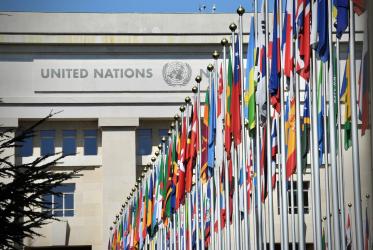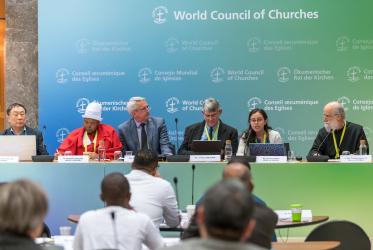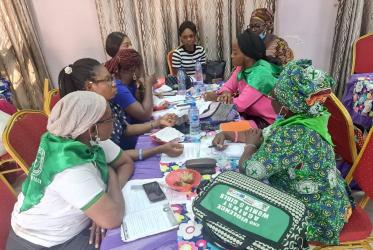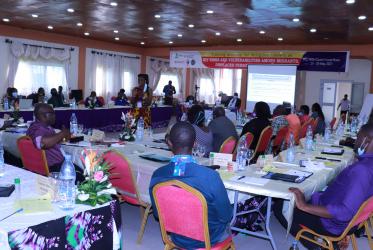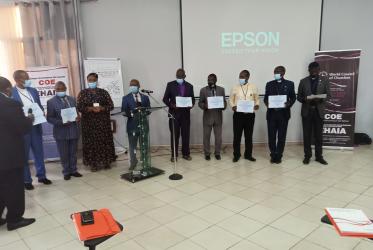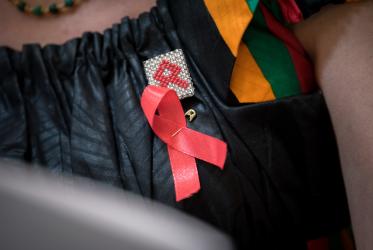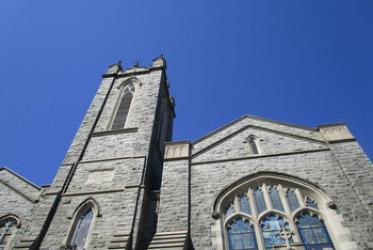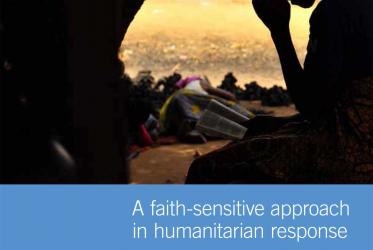Displaying 1 - 20 of 35
Pandemic and pedagogy: what are the valuable lessons?
21 December 2022
Nigerian churches train women and girls on human rights
20 December 2021
Workshop on HIV stigma, treatment adherence opens in Tanzania
29 September 2021
Healing Together
A Facilitator’s Resource for Ecumenical Faith and Community-Based Counselling
15 October 2020
Dealing with traumas and healing of wounds
04 June 2019
WCC welcomes new staff
06 November 2018
